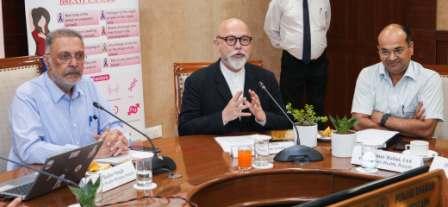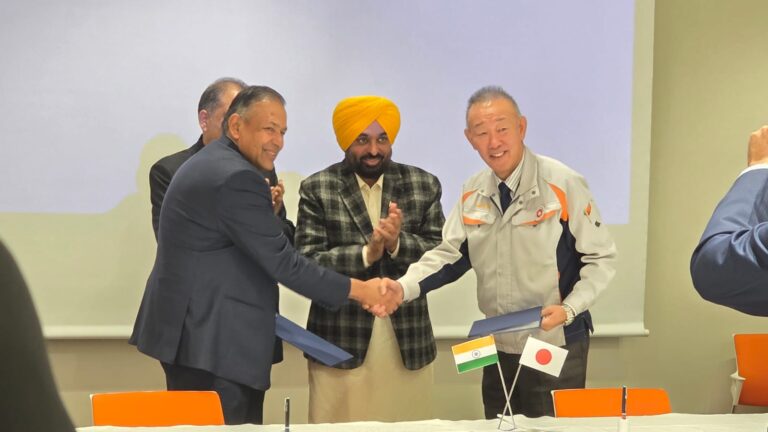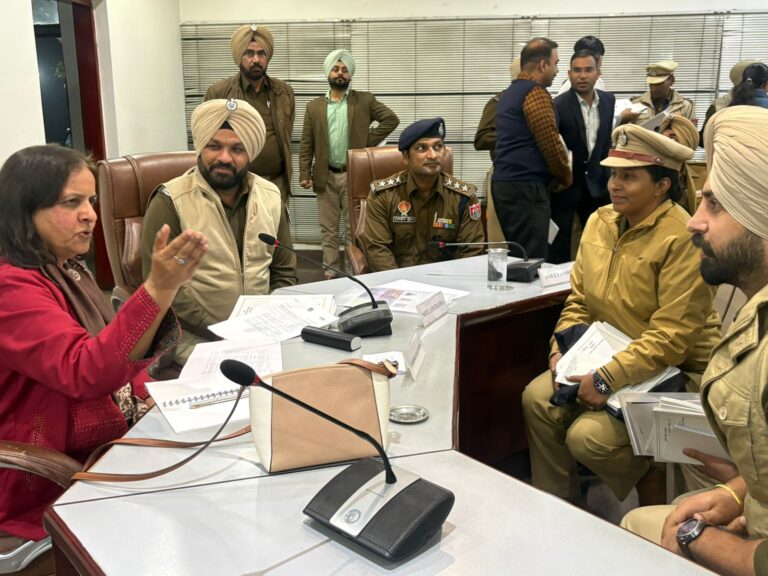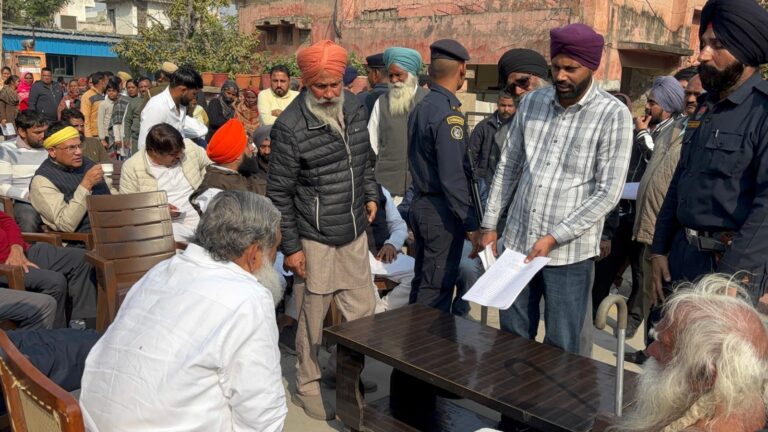
HEALTH MINISTER ALSO UNVEILS STANDARD TREATMENT GUIDELINES FOR CONSISTENT HIGH QUALITY CANCER CARE
CHANDIGARH, July 30: In a pathbreaking initiative to combat the escalating burden of cancer, the Government of Punjab, in close technical collaboration with the World Health Organization (WHO) India, has launched a comprehensive and people-centred Cancer Care Pilot Project in the districts of Bathinda, SAS Nagar (Mohali), and Gurdaspur. This transformative project was jointly unveiled by Punjab’s Health and Family Welfare Minister, Dr Balbir Singh, and WHO Representative to India, Dr. Roderico H. Ofrin, marking a significant milestone in the state’s commitment to strengthening cancer care and ensuring access to early, equitable, and quality treatment for all.
Punjab Launches Initiative for Early Detection and Treatment of Common Cancers
This pioneering initiative is designed to enhance early detection, timely diagnosis, and prompt treatment of oral, breast, and cervical cancers — three of the most prevalent and preventable cancers in India — through a decentralised, systems-based approach. It aligns strategically with the National Programme for Prevention and Control of Non-Communicable Diseases (NP-NCD). It also aims to seamlessly integrate cancer care into all levels of Punjab’s public health system. This integration occurs right from Ayushman Arogya Kendras at the grassroots to advanced tertiary care hospitals. This synergy aims to reverse the current trend. Over 60% of cancer cases in Punjab are diagnosed at advanced stages. This leaves limited scope for effective intervention.
Addressing the gathering, Health Minister Dr Balbir Singh emphasised, “Cancer does not mean death. It is very much curable if diagnosed in time. Early detection is the keystone of cancer care. This initiative reflects our belief in health as a fundamental right. It also shows our resolve to build a resilient and inclusive health system for all. We are leading by example and showing how innovation, backed by strong partnerships, can deliver life-saving outcomes.” He highlighted unhealthy lifestyles and poor dietary habits. They are critical contributors to rising cancer incidences. He advised citizens to adopt a healthier routine. This should include at least an hour of daily physical activity and nutritious, home-cooked food.
WHO Applauds Punjab’s Mission Umeed as Model for Cancer Care and NCD Control
Dr Roderico H. Ofrin, WHO Representative to India, applauded Punjab’s bold public health vision and efforts toward prevention and control of NCDs. He further stated that Mission Umeed with its comprehensive action plan stands out as leader in comprehensive cancer care in the country. He further stated that sustaining these investments and efforts, Punjab is well on track to achieving the NCD targets of the Sustainable Development Goal 3 (SDG-3) by 2030. Dr Roderico concluded saying, “WHO is proud to be a partner in this important initiative, and will continue offering its full technical support to make this model a replicable success across India”.
The cancer care pilot adopts a robust three-tier referral model. It encompasses a wide range of interventions. These include universal screening of individuals aged 30 and above, and capacity-building of frontline workers and clinical staff. The pilot integrates follow-up and referral systems and utilizes digital monitoring via the NP-NCD portal. Additionally, it involves intensive community engagement and awareness campaigns led by ASHAs, Community Health Officers (CHOs), and local governance structures.
Punjab-WHO Launch Cancer Care Pilot, Releases Updated Treatment Guidelines
This project builds upon Punjab’s strong collaboration with WHO India in areas such as the India Hypertension Control Initiative. It now expands that partnership to address the pressing challenge of cancer. The pilot aims to enhance early detection and treatment adherence. It seeks to reduce the burden on tertiary hospitals. It also aims to fortify community-level health systems. The pilot intends to establish a scalable model that could shape national and global strategies in cancer prevention and care.
Earlier, Dr Balbir Singh also released updated Standard Treatment Guidelines (STGs). These guidelines provide a critical roadmap for healthcare providers. They help policymakers deliver consistent, high-quality cancer care across the state.STGs have been prepared by technical experts from AIIMS Delhi, PGI, Homi Bhabha, Govt Medical Colleges and expert specialists from all over the State.
On this occasion Principal Secretary Health Kumar Rahul, Special Secretary Health-cum-MD NHM Ghanshyam Thori, Director Health and Family Welfare Dr Hitinder Kaur, SPO NP-NCD Dr Gagandeep Singh Grover, Medical Officer Dr Ashu, Dr. Abhishek Kunwar National Professional Officer (NCD) WHO – India, Dr. Ashish Bhat National NCD Officer WHO – India, Dr. Abhishek Khanna National Professional Officer (Health Promotions & SDH) WHO – India, were also present.




